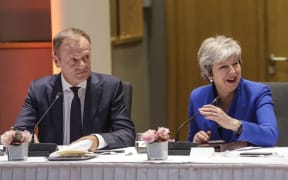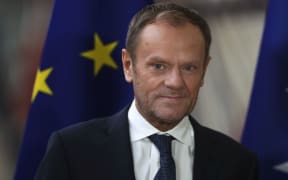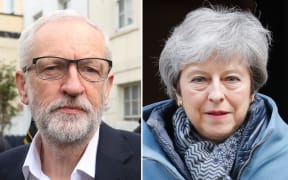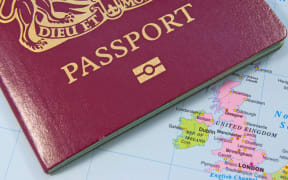By Rob Watson, UK political correspondent - BBC World Affairs Unit
It is a longer delay than UK Prime Minister Theresa May asked for, but shorter than most EU leaders wanted.
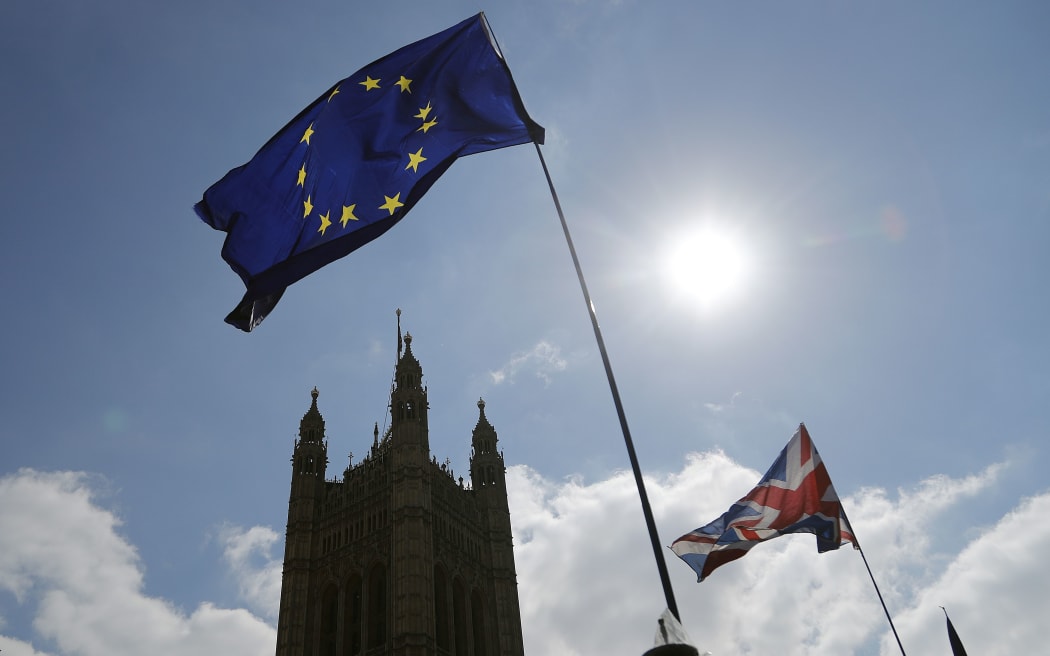
Brexit protester flags fly opposite the Houses of Parliament in London, Thursday, April 11, 2019. Photo: AP
By extending the Brexit deadline to 31 October, they have prompted headlines of "Halloween Brexit" and fuelled controversy over UK participation in next month's European elections.
So what will happen next? I've boiled it down to a short summary - and a longer analysis.
The story in 100 words
With the clock ticking again, Mrs May wants Parliament to finally agree on the UK's withdrawal from the EU preferably before 23 May, to avoid the UK taking part in elections to the European Parliament.
Her plan is first to try to get a cross-party agreement with the opposition Labour Party.
If that fails, there could be a series of votes in Parliament on alternatives to her deal, such as holding a second referendum. But agreement has so far proved elusive, so it's entirely possible the UK will be back where it started at the end of extra time.
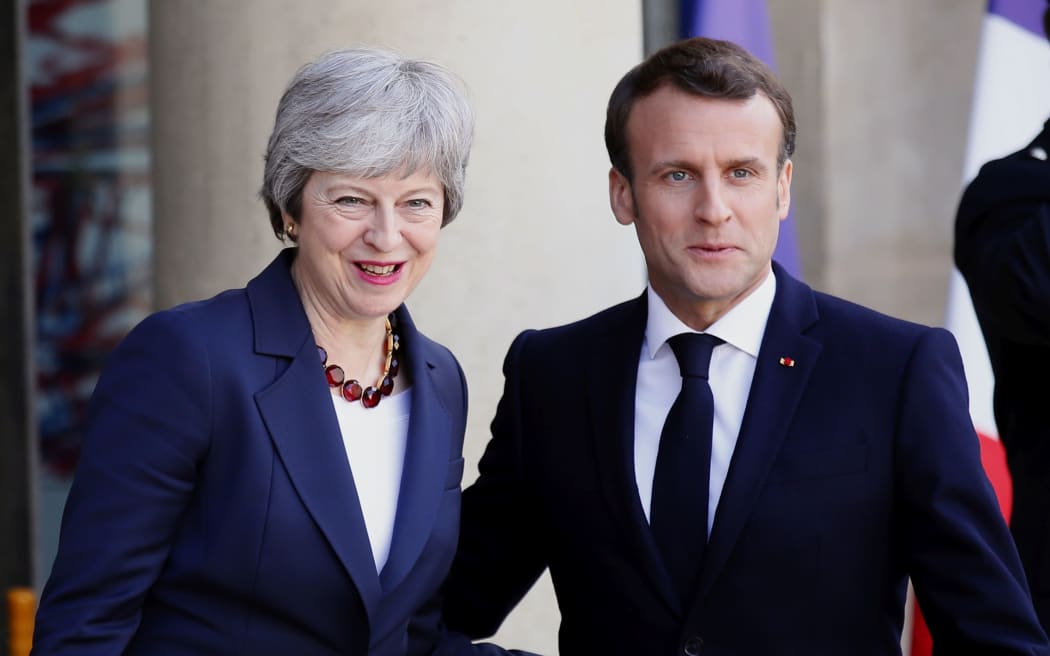
French President Emmanuel Macron and British Prime Minister Theresa May at the Elysee Palace in Paris earlier this week. Photo: AP
The story in 500 words
The granting of six more months looks like an extension of the UK's Brexit crisis, rather than an imminent end to the uncertainty.
The two big questions now are:
- Can UK politicians reach a consensus on how to leave the EU, after more than two years of failing to do so?
- Can Mrs May survive as prime minister and leader of the governing Conservative Party, after yet another delay to Britain's departure?
On the first question there is little reason for optimism.
Britain's politicians are now broadly divided into three camps:
- Those enthusiastic "Brexiteers" on the right of the Conservative Party who want to leave the EU sooner rather than later, even if that means doing so without any kind of deal
- Those who see Brexit as a question of damage limitation and who would prefer the UK to stay close to the EU after departure
- Those who now see Brexit as such a disaster they want it reversed altogether, either by another referendum, or if necessary by Parliament simply calling a halt to the whole process itself.
As time has gone on and tempers have frayed, MPs have, if anything, hardened in their positions rather than become more willing to compromise. So finding agreement will not be easy in the months ahead.
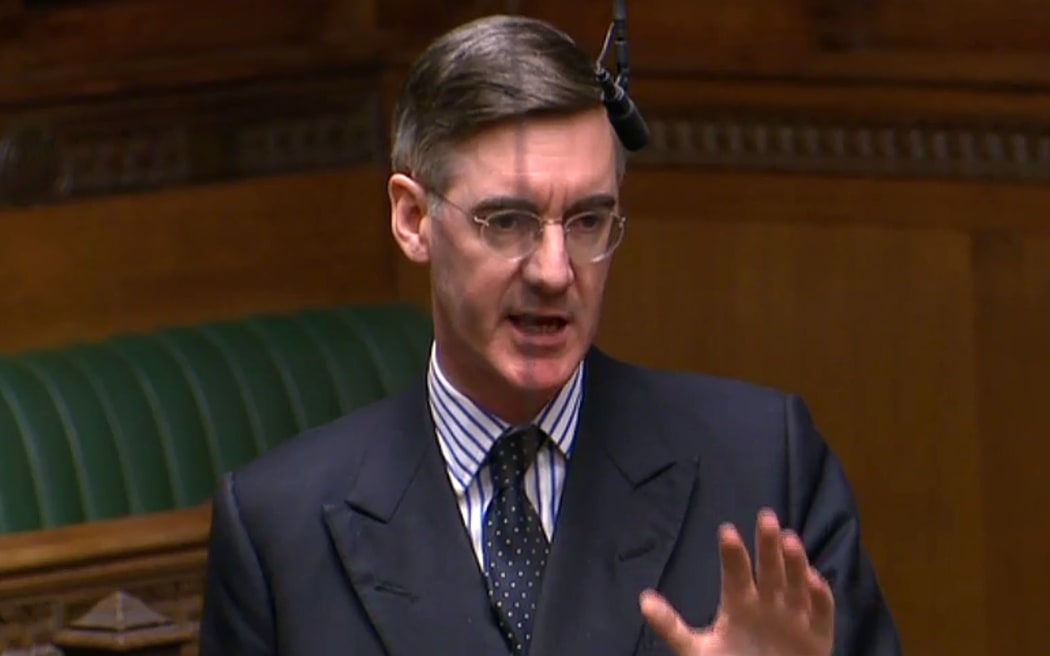
Conservative MP and Brexiteer Jacob Rees-Mogg. Photo: AFP / PRU
Complicating what is undoubtedly the UK's most profound political crisis since World War II, Brexit is also an issue that provokes powerful divisions not just between the two main parties, Conservative and Labour, but within them too.
As to Mrs May's survival, it's hard to say. There is now turmoil in the Conservative Party.
Its pro-Brexit wing is furious with Mrs May for the delays to the UK's departure and her attempts to reach out to Labour and the possibility, therefore, of a Brexit that would leave the UK too closely tied to the EU for their tastes.
But moderate Conservatives are in turn furious with the Brexiteers for what they see as their utter unreasonableness. I can assure you the language they actually use about their colleagues is far stronger, but unfit for this website.
So even if Mrs May were to go, her replacement would face the same problem: how to meet the massive geopolitical challenge of charting Britain's future relationship with the EU, and therefore its place in the world, while faced with a bitterly divided party and Parliament.
So what happens next?
Anyone hoping this extension will be boring, and that UK politics will return to some kind of normality, is likely to be disappointed.
Rather, what follows is likely to be more of the same: an angry stalemate fought against the backdrop of a profoundly divided country more sceptical than ever about the very fitness of the political system.
There is an increasing sense inside Parliament and beyond that things cannot go on as they are.
Here, in no particular order, are the options over the next six months:
Mrs May's deal, a different deal, no deal, a government collapse followed by a general election or a second referendum and further delay.
But ask any British politician how all this ends and they will tell you they simply don't know. It's perfectly possible that by 31 October they still won't have an answer.
- BBC
